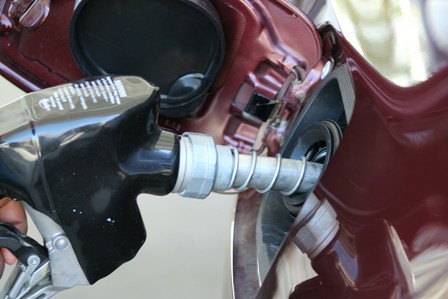Officially, Nigerian motorists shall enjoy fuel subsidy till June, 2023, the government has announced another pump price increase from N185 to N195 per litre.
Reacting, Independent fuel marketers have through their association announced a boycott of fuel sale. That means, fuel scarcity-induced queues shall persist into the 2023 general election.
Similarly, in South Africa, this month, February will see an increase in both petrol and diesel prices.
The first fuel price increase of 2023 will take the price of 93 octane petrol up to R21.38 per litre inland and 95 octane to R21.68. The wholesale price of diesel will increase to R21.32 a litre. As a result, it may be tempting to ‘just’ try some fuel-saving methods gaining popularity; there is reason to avoid these.
To this end, this is a period, when motorists would be interested in experimenting with any idea or device that would make give them more mileage from every litre of fuel paid for.
One of such is known as Fuel Pills. How beneficial are they?
According to the CEO of the South African-based MasterDrive, Eugene Herbert, two problematic ingredients, naphthalene and ferrocene, were found in fuel pills that not only makes them ineffective but potentially damaging to your vehicle as well.
“If a fuel pill contains either ingredient, there is little to no benefit and can even cause greater fuel consumption. If you do not know what it contains, you are being taken advantage of, and worse, adding potentially harmful substances to your vehicle.
“Numerous tests conducted on fuel-saving devices like ‘fuel pills’ show they do not actually save enough fuel to even be measurable. In South Africa, companies like Sasol call them a scam and the Western Cape government warns against their use.”
Unfortunately, attempts to save fuel are not limited to fuel pills. It cannot be over-emphasised that the only thing intended to go into your fuel tank is fuel. Another gimmick some have tried using is Coca-Cola instead of fuel. A company associated with a viral video distanced itself because Coca-Cola is definitely not a safe substitute for fuel. It will likely cost much more than potential improbable savings.
Other hard-to-believe ‘hacks’:
- Ketchup/tomato sauce
- Plug-in devices
- Dishwasher tablets
- Toothpaste
- Buying fuel early in the morning
- Overinflating tyres
Be cautious of techniques employed to save fuel especially if it involves putting foreign substances into fuel tanks.
“It is not true that if it doesn’t work, ‘no harm no foul.’ It can cause plenty of harm which is not worth the supposed savings. Research proves it can only cause harm to your vehicle. Ultimately, if it sounds too good to be true, it probably is,” says Herbert.
The real hacks
Luckily, there are proven techniques. Except, these may not be what you are expecting. Techniques such as defensive driving, not speeding, anticipating traffic conditions, avoiding reckless driving and planning routes are the best way to get results. Introducing these ‘hacks’ can potentially reduce fuel consumption by up to 20%,” says Herbert.
Other ‘real hacks’ include:
- Watching 12 seconds ahead as you drive
- Reducing speed by 20km/h
- Use traffic apps and alerts to avoid congestion
- Keep RPMs around 3 000
- Regular maintenance
- Remove unnecessary items from your car
Real hacks to improve consumption are not as revolutionary as many drivers think.
©Copyright MOTORING WORLD INTERNATIONAL. All rights reserved. Materials, photographs, illustrations and other digital content on this website, may not be reproduced, published, broadcast, rewritten or redistributed in whole or in part without prior written permission from Motoring World International
Contact: info@motoringworldng.com




